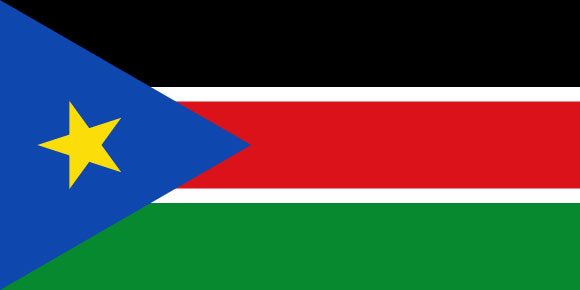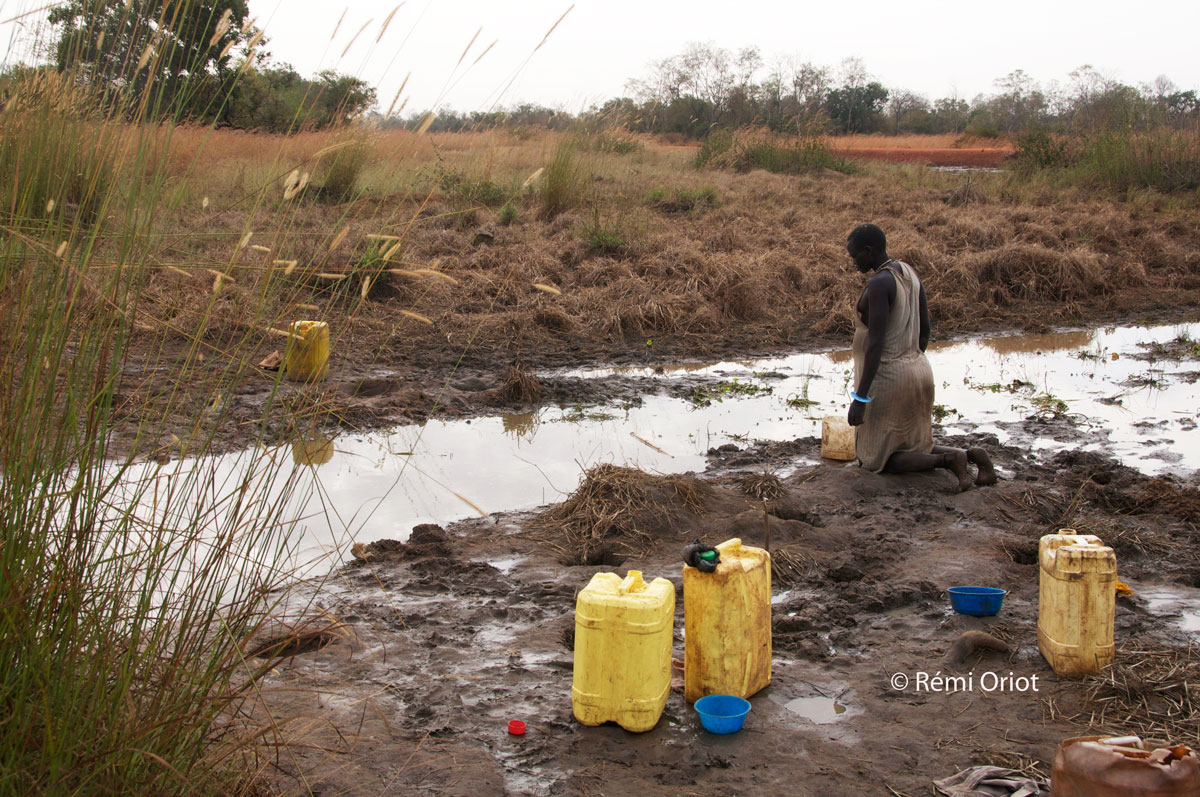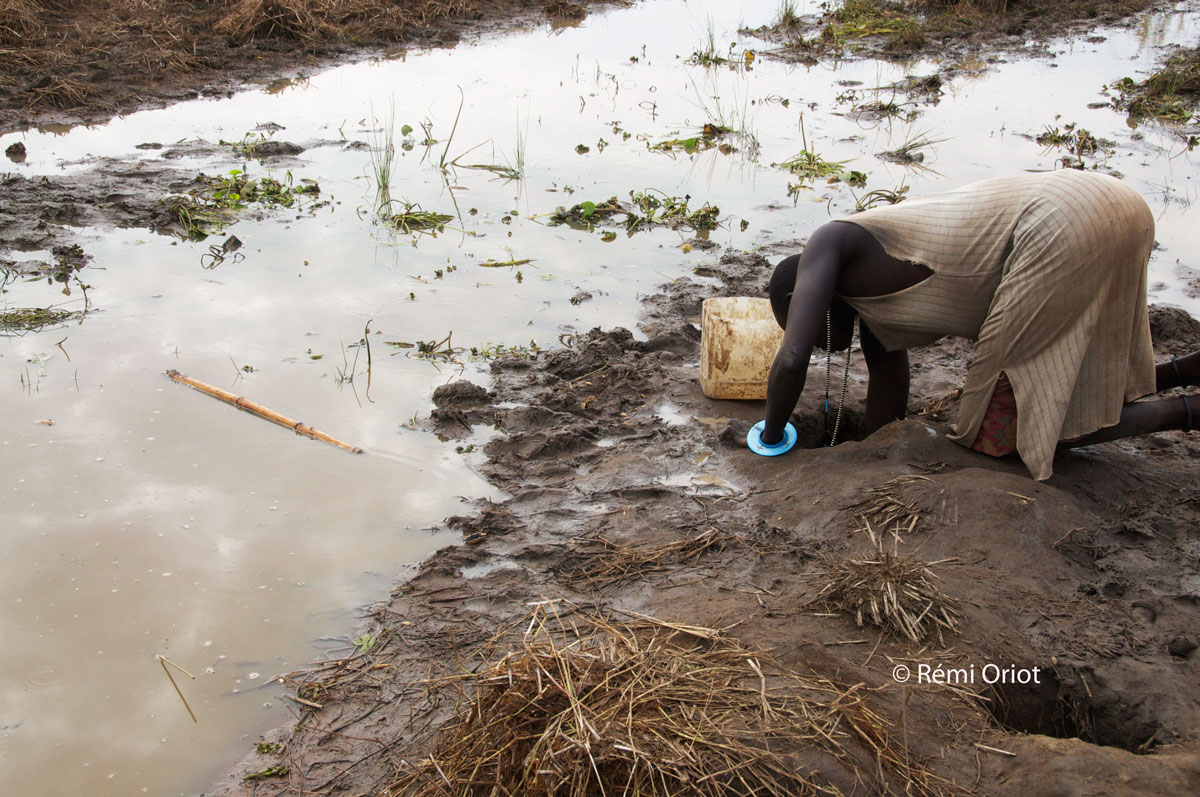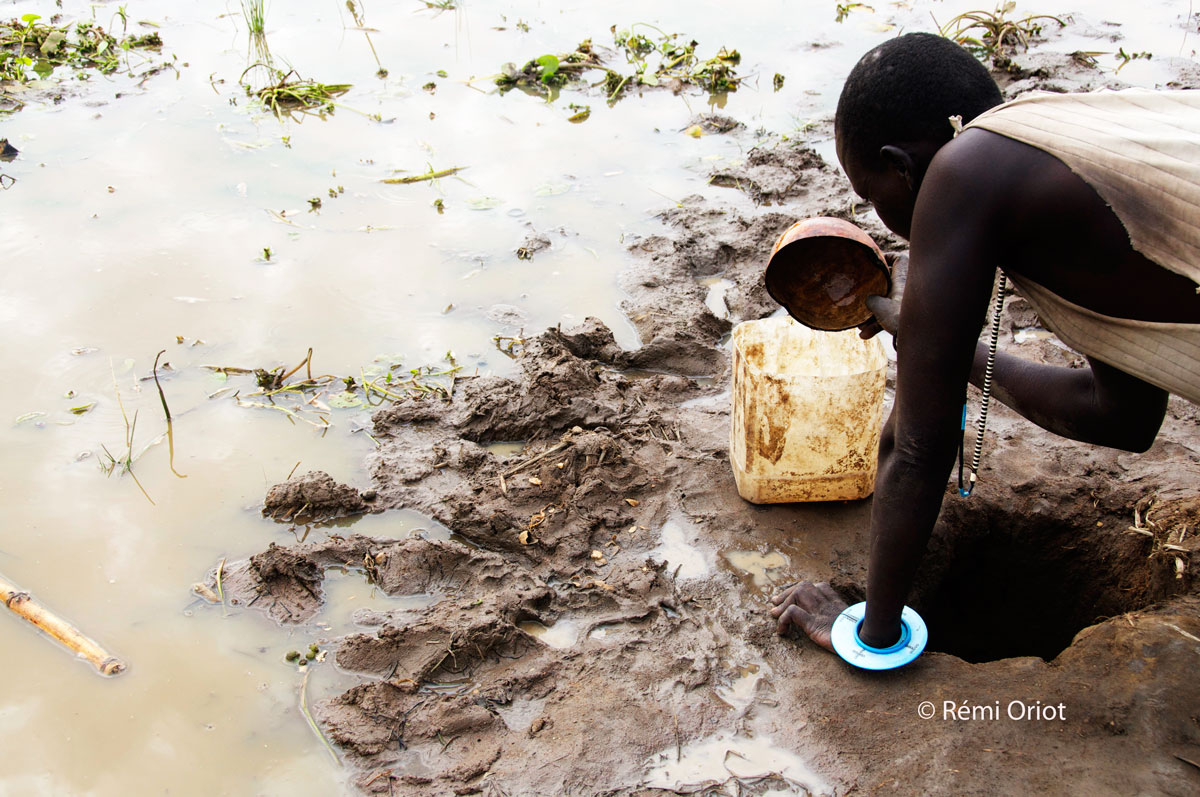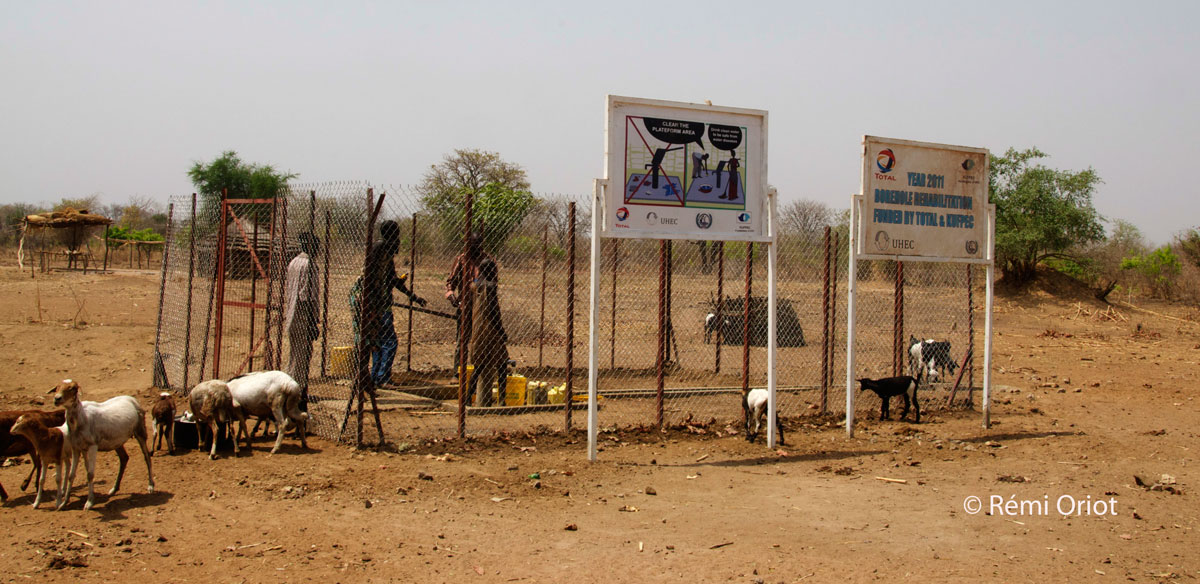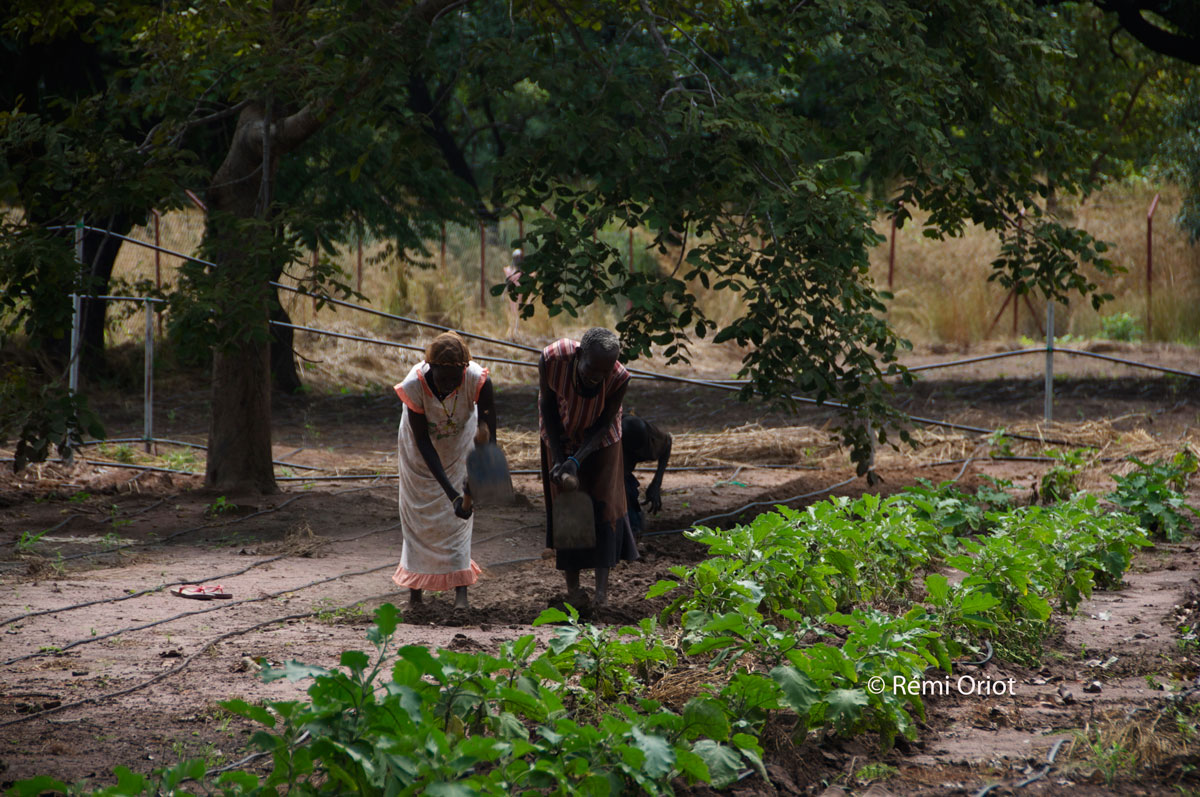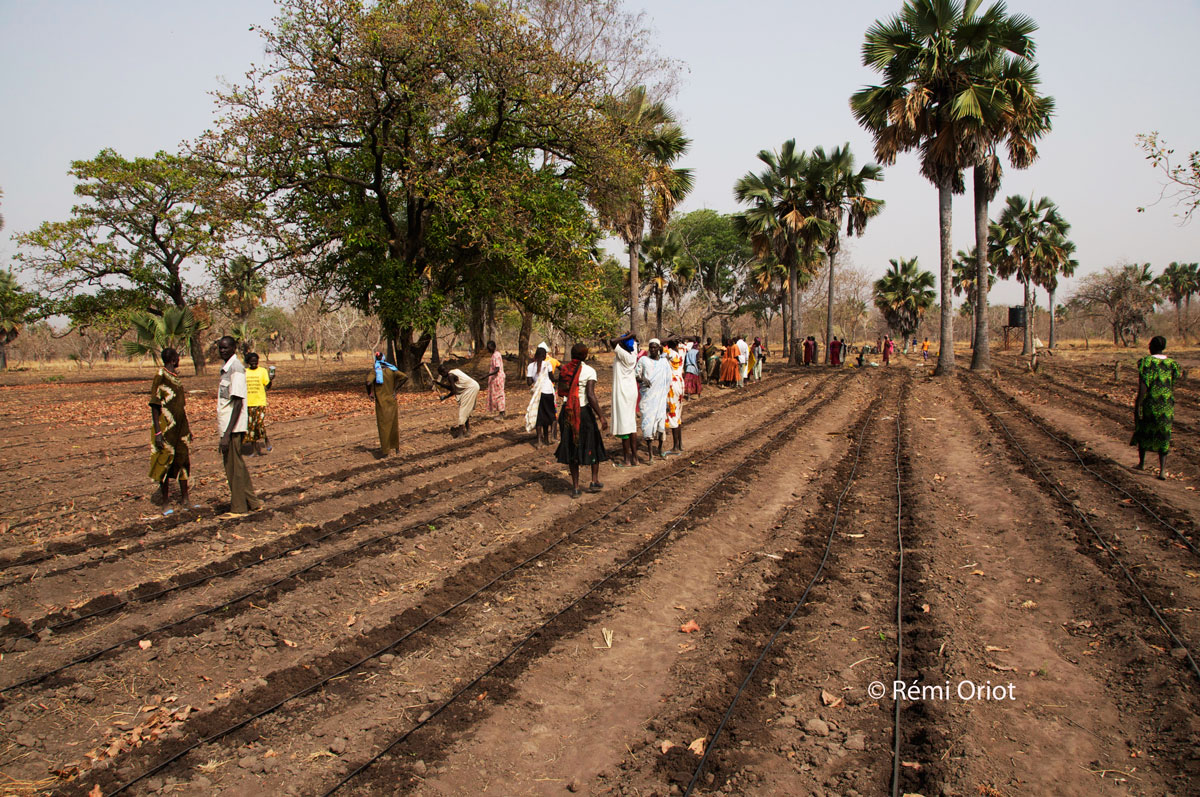South Sudan : giving more people access to water
South Sudan, a particularly challenging environment where needs were considerable
South Sudan has a dry season lasting around seven months and a rainy season of four or five months, during which food is grown. Very little is grown in the dry season, except near the few rivers that not dry up. South Sudan therefore experiences a water shortage for two-third of the year, and its semi-arid climate limits the crops growing period to the rainy season. Combined with limited knowledge of farming methods and a shortage of infrastructure to store crops, this leads to food insecurity.
South Sudan was also confronted by serious public health challenges :
- Over 75% of diseases were waterborne
- The country had the world’s hightest incidence of desease caused by the parasitic Guinea worm due to ingestion of dirty or contaminated water
Thirty years of civil war without educational opportunities – no schools or vocational training centers – have had a profound impact on the population, producing a severe lack of skills and capabilities.
The communities living in Jonglei and Lakes States are semi-nomadic. Some families are settled and others herd cattle, considered the cornerstone of society in rural regions.
Traditionnal society revolves around cattle. The age-old practice of cattle raids are still very widespread. This continuiting practice keeps people constantly on high alert and often fuels suspicion and agression.
Tensions between different ethnic groups, clan or even families within the same clan ran hight. Each week brought new deaths and injuries.
Improving access to water to build or consolidate the peace
Under these environmental and social conditions, access to water was a competition, a challenge and a source of inter – community conflict.
Before establishing our action plan we carried out an exhaustive survey of the social and economic environment in potential host areas. Its finding were the same as those reached by local authorities and the main development players : the way to build peace is to improve access to water.
This is why from 2008 to 2013 we have been engaged in this issue at three levels :
- Access to drinking water for communities
- Access to water for livestock
- Access to water to irrigate crops in dry season
Access to water for communities and livestock, an end-to-end process to ensure sustainable supply
Programs to provide access to water for communities had several diferent stands, in order to guarantee as far as possible the sustainability of improvements. They all involved :
- Working with local authorities, such as the Water department in rural areas and village chiefs, to identify priority sites.
- Developing the site with the community with activities including cleaning and clearing land.
- Drilling wells or rehabilitating damaged wells.
- Building a suitable concrete base.
- Putting up fences to stop livestock from contaminating the base and water supply.
- Deploying a hygiene awareness campaign to teach people the basic way to prevent contamination. The campaigns were aimed at schools, churches, youth assciations, and existing social organizations. They also directly targetted communities theough video screenings or sketches performed in villages.
- Training a well maintenance committee that was responsible for establishing hygiene standards and enforcing them among local women, because culturally it was women who collectted the water.
- Training mechanics to repair hand pumps.
- Providing tools and mechnical parts. The availability of spare parts was one of the most challenging aspects of establishing sustainable drinking water access.
- Handing over completed pump stations to the supervisory authorities, which them entrusted them to communities.
From 2008 to 2013 we drilled 56 new wells and rehabilitated another 59. These wells served around 69 000 people. The overall budget for these initiatives was in the region of USD 2 million.
In Lakes State, which was the worst affected by Guinea worms, all these measures were being carried out in coordination with the national Guinea worm eradication program, developed by the Health Ministry.
The designs factored in access to water for livestock as well as communities. Hand pump bases have been redesigned so that the channel that catches water that spills from containers ran into a water through outside the fenced enclosure. This facilitated access to water for goats and sheep and, at certain times of the year, cattle.
Irrigation for crops, providing food, transforming society and improving the status of women
We launched our first irrigation programs for farmed plots in 2010. These programs were supported by educational initiatives targetting women’s associations, to build either general capabilities or farming skills. This choice was made because of the country’s social and cultural situation.
In South Sudan, 99% of women were illiterate. Tribal law holded sway in rural areas, and women had no rights. The prevalence of customory law (the country’s new constitution), wereby women were not entitled to land or property after their husbands died, continued to subjugate widows even though it had no official legal standing. If a woman wanted to file a complaint, she must go through a man such as her brother, husband or father for it to be recognized by the courts. A a result, women had no access to education or rights and were subservient in a very traditional society where polygamy was unrestricted and women could be bought for cattle. Despite the authorities’ commitment to empowering women, progress was slow and very little had changed.
Faciliting access to water for women in the dry season helped to improve their status. It gave them the means to became socio-economic stakeholders in their community.
Produce harvested in the dry season – different varieties of spinach, eggplant, tomato, green pepper, onion, cabbage and other vegetables – allowed families to add vitamins and minerals to their diet, which was at this moment primarily made up of grains harvested at the end of the rainy season, such as sorghum, maize and groundnuts. Any surplus was sold at local markets.
In economic terms, access to water to irrigate crops alllowed the development of income-generating activities.
Socially, it encouraged the mpowerment of women and paved the way for self-sufficiency in society. Starting out from a position of complete dependence on their husbands and brothers, women earned an income allowing them to pay for schooling for their children or health care, for example. This brought progress for the whole community.
We felt that this last initiative was so beneficial in terms of its socio-economic impact on communities that we have made the creation of cooperative farms one of the main focuses of our action plan since January 2012.
What we were doing to open up access to water for irrigation was supported by a more specific initiative that aimed to establish a network of women’s cooperatives and established a shared system to market the produce.
Conclusion
We have seen that expanding access to water in South Sudan was a powerful force for societal change in rural areas. It was a way of building lasting peace, step by step.
